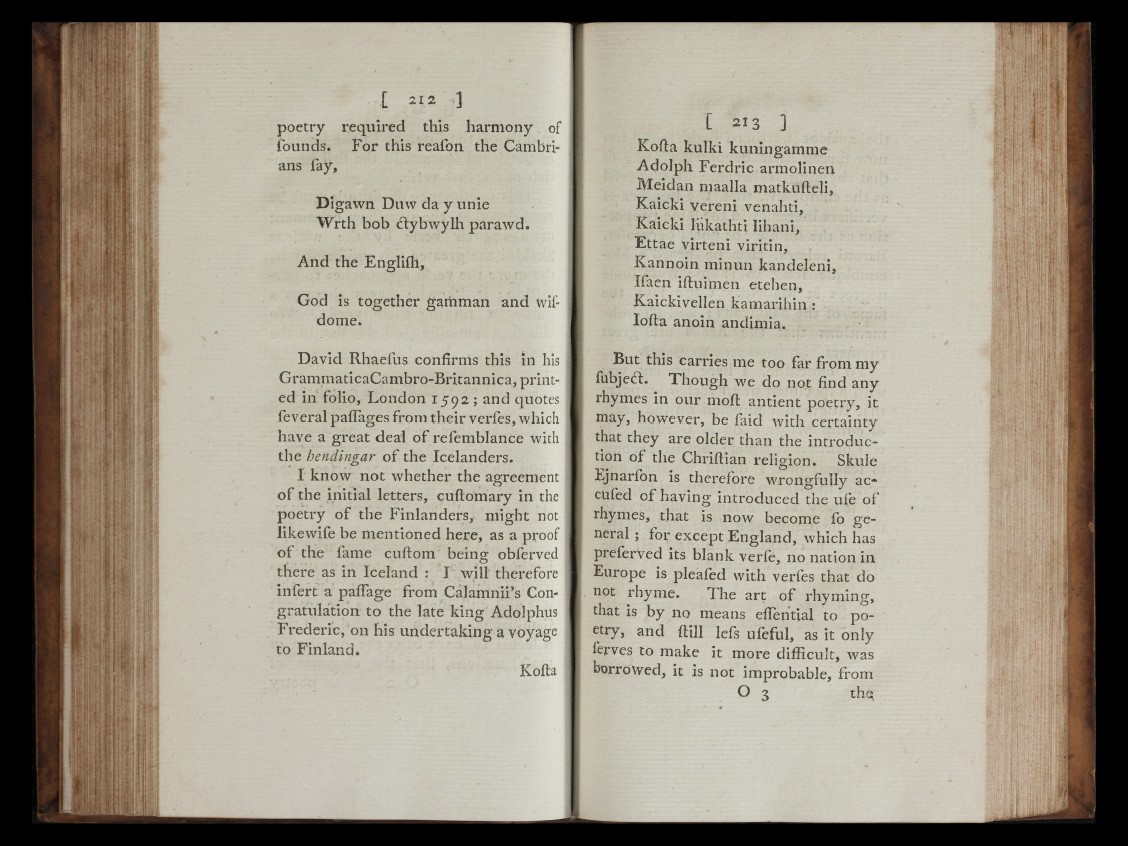
IH'-
' • :i I
A ..V
■ > i'
:
i" I ( B f
" 4
'xGi
- ■;! ( '1' ■G, ?
i '
G?
' ir
poetry required this harmony of
founds. For this reafon the Cambrians
fay,
Digawn Dnw da y unie
Wrth bob ¿tybwylh parawd.
And the Englifli,
God is together gartiman and wif-
dome.
David Rhaefus confirms this in his
GrammaticaCambro-Britannica, printed
in folio, London 1592 ; and quotes
feveral paifages from their verfes, which
have a great deal o f refemblance with
the hendingar o f the Icelanders.
I know not whether the agreement
o f the initial letters, cuftomary in the
poetry o f the Finlanders, might not
likewife be mentioned here, as a proof
of the fame cuftom being obferved
there as in Iceland : I will therefore
infert a paifage from Calamnii’s Congratulation
to the late king Adolphus
Frederic, on his undertaking a voyage
to Finland.
Koita
Kofta kulki kuningamme
Adolph Ferdric armolinen
Meidan maalla matkufteli,
Kaicki vereni venahti,
Kaicki liikathti lihani,
Ettae virteni viritin,
Kannoin minim kandeleni,
Ifacn iftuimen etehen,
Kaickivellen kamarihin :
lofta anoin andimia.
But this carries me too far from my
fubjefl. Though we do not find any
rhymes in our moft antient poetry, it
may, however, be faid with certainty
that they are older than the introduction
o f the Chriftian religion. Skule
Ejnarfon is therefore wrongfully ac*
cufed o f having introduced the ufe o f
rhymes, that is now become fo general
; for except England, which has
preferved its blank verfe, no nation in
Europe is pleaied with verfes that do
not rhyme. The art o f rhyming,
that is by no means eilehtial to poetry,
and ftill lefs ufeful, as it only
ferves to make it more difficult, was
borrowed, it is not improbable, from
O 3 thq
r ' . ■ -
: "'G.'
.' p' '
f
Ik',